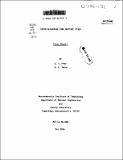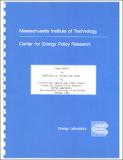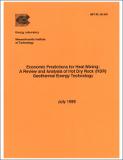MIT Energy Laboratory
Formed in 1972, the Energy Laboratory of the Massachusetts Institute of Technology (MIT) engaged in multidisciplinary research on a wide range of topics related to energy supply, extraction, conversion, and utilization and its impact on the local, regional, and global environment. As a special laboratory reporting to the vice president for research, the laboratory was able to cross traditional disciplinary lines and integrate diverse approaches to energy issues.
In July 2001, the Energy Laboratory and the Center for Environmental Initiatives (CEI) were merged to form the Laboratory for Energy and the Environment in an effort to bring researchers together in collaborations to support multi-disciplinary research on environmental and sustainability problems.
MIT Energy Initiative (MITEI) was formally established in November 2006The Laboratory for Energy and the Environment has been brought under the MITEI umbrella, providing essential administrative support for MITEI. MITEI publications can be found under this separate collection.
Collections in this community
Recent Submissions
-
Steam generator tube rupture study
(Cambridge, Mass. : Energy Laboratory, Massachusetts Institute of Technology, 1986, 1986)This report describes our investigation of steam generator behavior during a postulated tube rupture accident. Our study was performed using the steam generator, thermal-hydraulic analysis code THERMIT-UTSG. The purpose ... -
Final report on Canadian-U.S. natural gas trade
([Cambridge, Mass.] : Massachusetts Institute of Technology, Center for Energy Policy Research, Energy Laboratory, 1985, 1985) -
Economic predictions for heat mining : a review and analysis of hot dry rock (HDR) geothermal energy technology
([Cambridge, Mass.] : Energy Laboratory, Massachusetts Institute of Technology, 1990, 1990)The main objectives of this study were first, to review and analyze several economic assessments of Hot Dry Rock (HDR) geothermal energy systems, and second, to reformulate an economic model for HDR with revised cost components.


